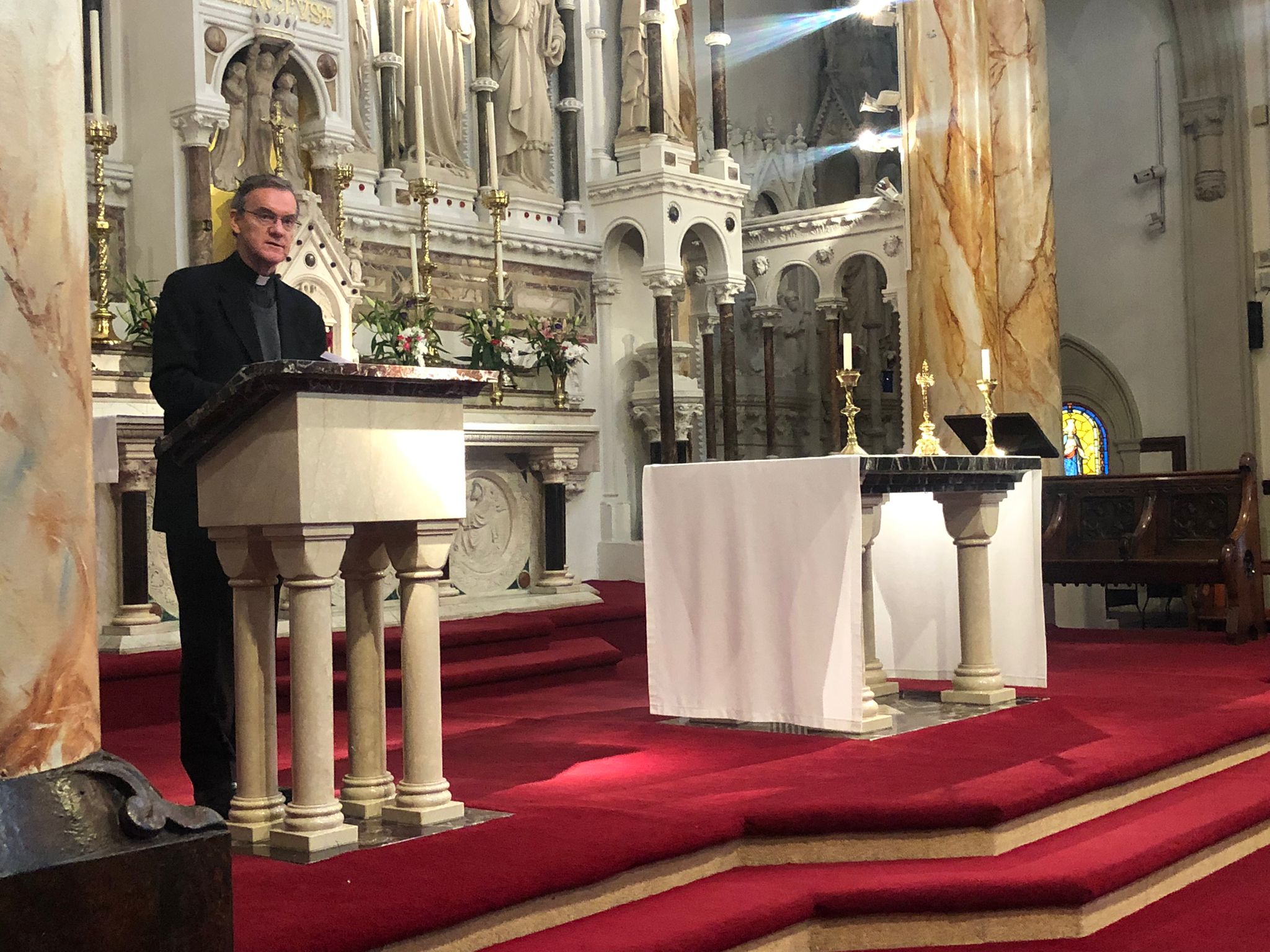Bishop Arnold challenges COP26 on climate change

Climate change is a global challenge which transcends national interests, the Bishop of Salford John Arnold has said.
He called on national and international political leaders to adopt policies that reflect progress on climate change at the local level.
He was speaking to delegates at the Conservative Party Conference in Manchester at a briefing on the Church and climate change hosted by Cafod and Catholics in the Conservatives.
“There are significant projects in parishes and schools both in educating and taking practical actions in conserving water and electricity, recycling, travel, food selection. The pupils in our schools show particular enthusiasm in learning about care for the environment.
“The project ‘Guardians of Creation’, a collaboration between the Laudato Si Research Institute, Oxford; St Mary’s University, Twickenham and the Diocese of Salford is producing research and advice for all dioceses for a journey to carbon neutrality.
“But local progress must be matched by national policies and the global response now required if we are to provide an environment suitable for the well-being of future generations.”
Bishop Arnold, environmental lead for the Catholic Bishops’ Conference of England and Wales, and chair of Cafod, said the challenges for COP26 included coming up with ambitious plans to limit global temperatures rise.
“All major economies will have to commit to more ambitious climate plans by 2030, including decarbonising their transport, energy and agriculture sectors,” he said.
The summit must also deliver the money promised to tackle the climate crisis. “Richer countries will need to provide what they’ve promised – at least $100 billion in climate finance every year until 2025 with a focus on helping low-income countries adapt to the impacts of climate change. They must also establish how this finance will increase in the future.”
In addition, he said, COP26 must “consign fossil fuels to history once and for all. G20 countries – as the world’s major emitters – need to collectively commit to consigning fossil fuels, coal, oil and gas, to history.”
He was speaking on the Feast of St Francis of Assisi who is the saint most closely associated with care for our common home, and the inspiration for the two social encyclicals of Pope Francis – Laudato Si’ in 2015 and Fratelli Tutti in 2020. October 4 was also the end of the ecumenical Season of Creation, where many people, parishes and schools have engaged in prayer, and practical actions, concerning the environment.
Bishop John spoke about the urgency of need of needing to act now on climate change: “There can be no doubt that we find ourselves in a particular moment of urgency.
“Much of the worst damage has occurred in some of the poorest countries of the world, impacting on people who have actually done least to cause it. But wealthy and prosperous nations have been far from immune – The United States in California and the Southern States, Canada, Australia, Germany, Sicily. There has even been evidence here in the United Kingdom of extreme and unseasonal weather conditions and floods.”
On Laudato Si’, Bishop John reiterated three important points that Pope Francis made: climate change is a crisis we are undergoing already, it has human roots, and it concerns and affects us all.
Bishop John said: “In Fratelli Tutti, Francis builds on how humanity can renew the sense of a common destiny which is necessary in responding to the challenges that face us all, like climate change. The pope mourns the fact that the pandemic has exposed our false securities.”
Bishop John reflected on Pope Francis’ call for leaders to learn to think and act globally, notably across political borders. “He reminds us of the traditional Christian belief that the right to private property is limited by the universal right of all people to have what they need to survive, suggesting that this also applies to assistance and aid offered between countries. This solidarity is balanced by subsidiarity, in which the state respects the capacity of local communities to organise and provide for themselves.
“Climate change is a global challenge which transcends national interests, but challenging decisions are also faced everyday by local communities, indigenous peoples, who have a right in saying how their land is used, or what will secure their livelihood and traditional living.”
Catholics in the Conservatives was formally launched earlier this year and has ten parliamentary patrons. It aims to strengthen links between Catholic member of the party and make the Conservatives more attractive to the 4.5 million Catholic community in Great Britain.
Sally-Ann Hart, MP for Hastings and Rye, said: “The Prime Minister has rightly put green infrastructure and jobs at the heart of our plans for recovery from the pandemic. I’m proud to be supporting this work as one of the Conservative Environment Network’s Net Zero Champions.
“It was wonderful to have the chance to discuss the Catholic Church’s response to climate change as part of this year’s Conservative party conference. The duty to act on climate change is clear from our Conservative values of stewardship and conservation, as well as the Church’s teaching of care for creation and treating people as our neighbours.
“I’m delighted to be supporting the work of Catholics in the Conservative Party. There are lots of people in our party who take their faith seriously and are committed to bringing about the common good in the communities they serve.”


 Votes : 0
Votes : 0









